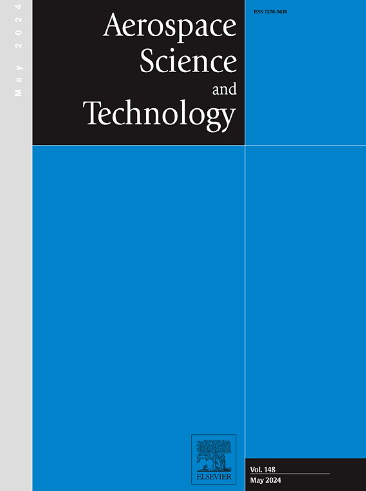航空发动机传感器故障检测、隔离与恢复在线学习框架
IF 5
1区 工程技术
Q1 ENGINEERING, AEROSPACE
引用次数: 0
摘要
准确可靠的传感器数据对于现代航空发动机控制系统的安全运行至关重要。然而,在整个发动机生命周期中保持故障诊断模型的准确性和鲁棒性尤其具有挑战性,特别是在逐渐退化的情况下。为了解决这些问题,本文提出了一种新的故障检测、隔离和恢复(FDIR)框架。该框架采用深度去噪自动编码器(DDAE)进行故障检测,采用多模型策略进行故障隔离,采用双任务学习框架进行故障信号恢复,确保了系统的完整性和连续运行。此外,还引入了一种基于分布均值偏移的在线更新机制,将参数正则化和记忆重放相结合,防止了灾难性遗忘,增强了自适应能力。实验结果表明,该框架在非退化和退化条件下均能实现高精度FDIR,具有良好的鲁棒性和自适应性。将数据驱动方法与自适应在线学习机制相结合,为航空发动机传感器故障诊断提供了一种可扩展、可靠的解决方案。它不仅提高了复杂数据密集型系统的运行安全性和效率,而且有助于推进该领域的最新技术。本文章由计算机程序翻译,如有差异,请以英文原文为准。
An online learning framework for aero-engine sensor fault detection isolation and recovery
Accurate and reliable sensor data are critical for the safe operation of modern aero-engine control systems. However, maintaining the accuracy and robustness of fault diagnosis models throughout the engine lifecycle is particularly challenging, especially under conditions of gradual degradation. To address these challenges, this paper proposes a novel Fault Detection, Isolation, and Recovery (FDIR) framework. The framework utilizes a Deep Denoising Autoencoder (DDAE) for fault detection, a multi-model strategy for fault isolation, and a dual-task learning framework for fault signal recovery, ensuring system integrity and continuous operation. Additionally, an online update mechanism based on distribution mean shifts is introduced, integrating parameter regularization and memory replay to prevent catastrophic forgetting and enhance adaptability. Experimental results demonstrate that the proposed framework achieves high-precision FDIR under both non-degraded and degraded conditions, exhibiting superior robustness and adaptability. By combining data-driven methods with adaptive online learning mechanisms, this work provides a scalable and reliable solution for aero-engine sensor fault diagnosis. It not only enhances the operational safety and efficiency of complex, data-intensive systems but also contributes to advancing the state of the art in this field.
求助全文
通过发布文献求助,成功后即可免费获取论文全文。
去求助
来源期刊

Aerospace Science and Technology
工程技术-工程:宇航
CiteScore
10.30
自引率
28.60%
发文量
654
审稿时长
54 days
期刊介绍:
Aerospace Science and Technology publishes articles of outstanding scientific quality. Each article is reviewed by two referees. The journal welcomes papers from a wide range of countries. This journal publishes original papers, review articles and short communications related to all fields of aerospace research, fundamental and applied, potential applications of which are clearly related to:
• The design and the manufacture of aircraft, helicopters, missiles, launchers and satellites
• The control of their environment
• The study of various systems they are involved in, as supports or as targets.
Authors are invited to submit papers on new advances in the following topics to aerospace applications:
• Fluid dynamics
• Energetics and propulsion
• Materials and structures
• Flight mechanics
• Navigation, guidance and control
• Acoustics
• Optics
• Electromagnetism and radar
• Signal and image processing
• Information processing
• Data fusion
• Decision aid
• Human behaviour
• Robotics and intelligent systems
• Complex system engineering.
Etc.
 求助内容:
求助内容: 应助结果提醒方式:
应助结果提醒方式:


